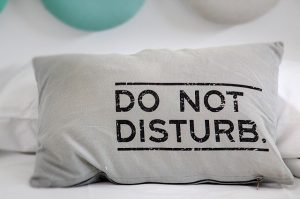Are you tired of waking up still feeling exhausted? Do you struggle to get a good night’s sleep?
As a hypnotherapist based in the UK, I understand the importance of deep sleep for overall health and well-being.
In this article, I will introduce you to my sleep programs and explain the benefits of deep sleep, such as improved memory, boosted immune system, increased energy, and better physical performance.
I will also discuss the causes of poor sleep, how hypnotherapy can help, and provide tips for improving sleep hygiene.
Let me help you wake up feeling refreshed with deep sleep and hypnotherapy.
Sleep More Deeply and Feel Refreshed with My Help
I’m Sonya Hudson, I specialise in helping individuals achieve deep sleep for a refreshed morning. With my assistance, you can experience the benefits of restful sleep.
Quality sleep is a vital component of overall well-being, impacting your physical, mental, and emotional health. Lack of adequate rest can lead to a cascade of negative effects, from increased stress levels to decreased cognitive function.
Deep sleep is crucial for the body’s repair and rejuvenation processes, helping you wake up feeling energised and ready to tackle the day ahead.
By addressing underlying issues that disrupt your sleep patterns, I can guide you towards establishing healthy habits and a holistic approach to bedtime routine to optimise your sleep quality.
What is Deep Sleep?
Deep sleep isn’t just any ordinary sleep; it’s a vital stage of the sleep cycle where your body and mind undergo essential restoration and rejuvenation. Think of it as the VIP section of your slumber party. During this phase, your brain waves slow down, allowing your body to engage in repair and growth processes. It’s like hitting the reset button for your entire system. You’ll notice decreased heart rate, lowered body temperature, and minimal muscle activity – all signs that your body is hard at work behind the scenes, getting you ready for the day ahead.
Introducing My Sleep Programs
My sleep programmes are designed to assist individuals in achieving deep, restorative sleep for a refreshed start to each day. Through personalised sessions and techniques, you can experience the benefits of quality rest.
By focusing on individual needs and preferences, the programmes aim to identify and address specific factors that may affect sleep quality. Utilising a combination of relaxation techniques, mindfulness practices and sleep hygiene education, participants learn to create an optimal sleep environment conducive to restful nights.
- Customised sleep schedules and bedtime routines help establish consistency in sleep patterns
- Integration of guided imagery and progressive muscle relaxation aids in reducing stress and promoting relaxation
- Strategies for managing sleep disruptions are tailored to each person’s unique sleep challenges
This personalised approach ensures that each participant receives targeted support to enhance their deep sleep and overall well-being.
Understanding the Importance of Deep Sleep
Deep sleep plays a crucial role in enhancing cognitive function, regulating emotions, and supporting overall health. Understanding the importance of deep sleep can lead to significant improvements in well-being.
During deep sleep, the brain processes and consolidates memories, enhances learning and problem-solving abilities, and promotes mental clarity.
Deep sleep is essential for emotional regulation, helping individuals manage stress, anxiety, and mood disturbances effectively.
Prioritising deep sleep has a profound impact on physical health, boosting immune function, regulating hormones, and reducing the risk of chronic conditions like obesity, diabetes, and cardiovascular diseases.

What are the Benefits of Deep Sleep?
Deep sleep offers a multitude of benefits, including improved memory, boosted immune system, increased energy, and better physical performance. Embracing deep sleep can transform your daily life.
When you prioritise deep sleep, you are effectively giving your brain the opportunity to consolidate memories, leading to enhanced retention and mental acuity. This crucial phase of rest allows your immune system to recharge, fortifying your body’s defences against illnesses.
Deep sleep is essential for replenishing energy levels, ensuring you wake up feeling refreshed and ready to tackle the day ahead. It’s during this stage that your body undergoes repairs, promoting muscle growth and recovery which can enhance your physical performance in various activities.
Improved Memory and Learning
Quality sleep is essential for memory consolidation and optimal cognitive function. By addressing sleep-related issues such as stress and anxiety, you can enhance your memory and learning abilities.
During sleep, the brain processes and consolidates new information acquired throughout the day. Lack of quality sleep can impede this crucial memory consolidation process, leading to difficulties in retaining and recalling information.
To promote better sleep and enhance memory, it is important to establish a consistent bedtime routine, create a relaxing sleep environment, and practice relaxation techniques such as deep breathing or mindfulness meditation. Managing stress and anxiety through activities like regular exercise, limiting caffeine intake, and setting aside time for unwinding before bed can significantly improve sleep quality and cognitive function.
Boosted Immune System
Adequate sleep strengthens the immune system, helping the body combat infections and illnesses. Addressing factors like stress and anxiety that hinder sleep can significantly boost your immune health.
When you prioritise getting enough sleep, you are essentially giving your immune system the support it needs to function optimally. During sleep, the body repairs and rejuvenates itself, allowing for the production of immune cells that play a crucial role in fighting off pathogens.
Chronic stress and anxiety can disrupt this delicate balance, leading to poor sleep quality and weakening the immune response. The release of stress hormones can interfere with the sleep-wake cycle, making it harder to achieve restful sleep.
To counteract these effects, incorporating relaxation techniques such as mindfulness meditation, deep breathing exercises, or gentle yoga before bedtime can help calm the mind and promote better sleep.

Increased Energy and Mood
Deep sleep revitalises the body, leading to increased energy levels and improved mood throughout the day. Managing stress and anxiety for better sleep can significantly enhance your daily vitality and emotional well-being.
When you prioritise quality sleep, you allow your body to repair and recharge, setting the stage for a productive day ahead. Incorporating relaxation techniques before bedtime, such as deep breathing or gentle stretching, can help ease the mind and promote a more restful sleep cycle.
It’s essential to create a soothing bedtime routine, free from distractions like screens or heavy meals close to bedtime. By establishing a calming environment and practising mindfulness, you can optimise your sleep quality and wake up feeling refreshed and ready to take on the day.
Better Physical Performance
Quality sleep is essential for optimal physical performance, as it allows for muscle recovery and repair.
During deep sleep, the body enters a regenerative state where growth hormones are released, promoting the repair and rebuilding of tissues, including muscles. This phase is crucial for restoring energy levels and supporting overall physical health. By prioritising quality sleep, you can ensure that your body has the necessary time to carry out these essential functions.
Managing stress and anxiety through relaxation techniques such as deep breathing, meditation, or creating a calming bedtime routine can significantly improve sleep quality, leading to enhanced physical abilities and increased stamina.
What are the Causes of Poor Sleep?
Poor sleep can be attributed to various factors, including stress, anxiety, poor sleep habits, and underlying medical conditions. Identifying the causes of poor sleep is the first step towards achieving restful nights.
Stress, a common culprit in disrupting sleep, can lead to racing thoughts and physical tension that make it difficult to relax. Similarly, anxiety can cause heightened alertness, making falling asleep a challenge. Poor sleep routines, such as irregular bedtimes or too much screen time before bed, can interfere with the body’s natural sleep-wake cycle. Medical issues like sleep apnoea or chronic pain can also significantly impact sleep quality.
Stress and Anxiety
Stress and anxiety are common culprits behind poor sleep quality, disrupting the natural sleep cycle. By managing stress and anxiety effectively, you can create a conducive environment for restful and deep sleep.
The impact of stress and anxiety on sleep patterns can manifest in various ways, from difficulty falling asleep to frequent awakenings during the night. These disturbances can lead to a vicious cycle, where lack of sleep further increases stress levels, perpetuating the problem. To counteract this, incorporating coping strategies such as mindfulness meditation, deep breathing exercises, or progressive muscle relaxation before bedtime can help calm the mind and body.
Poor Sleep Habits
Unhealthy sleep habits, such as irregular sleep schedules and excessive screen time before bed, can hinder deep sleep. Addressing and modifying poor sleep habits can lead to significant improvements in sleep quality.
Creating a consistent bedtime routine can help signal to the body that it’s time to wind down and prepare for sleep. This routine may involve activities like reading a book, taking a warm bath, or practising relaxation exercises.
Limiting caffeine and heavy meals close to bedtime assists in promoting better sleep as these can disrupt the body’s natural sleep-wake cycle.
Additionally, establishing a comfortable sleep environment, with a cool room temperature, supportive mattress, and minimal noise and light, can enhance overall sleep quality.

Medical Conditions
Certain medical conditions, like sleep apnoea or chronic pain, can disrupt sleep patterns and prevent deep, restorative sleep. Seeking appropriate medical assistance and treatments can address these underlying issues for improved sleep quality.
People experiencing sleep apnoea may benefit from using Continuous Positive Airway Pressure (CPAP) machines during sleep to keep their airways open, allowing for better breathing and uninterrupted sleep. For those dealing with chronic pain, a combination of pain management techniques such as physiotherapy, medication, and relaxation exercises can help alleviate discomfort, leading to more peaceful nights.
It’s crucial for individuals facing these challenges to work closely with healthcare providers to develop personalised treatment plans that target the specific root causes of their sleep disturbances. By addressing the underlying medical conditions effectively, individuals can pave the way for more restful and rejuvenating nights.
How Can Hypnotherapy Help with Deep Sleep?
Hypnotherapy offers incredibly effective techniques for addressing underlying issues and improving sleep quality. It’s truly transformative to witness how it can help individuals uncover the root causes of their sleep disturbances by tapping into the subconscious mind. Whether it’s unresolved anxieties or past traumas, hypnotherapy allows us to tailor sessions to guide individuals towards a state of deep relaxation. This helps pave the way for improved sleep quality and equips them with valuable tools like visualization and cognitive restructuring to rewire negative thought patterns. It’s amazing to see how these techniques can make a real difference in someone’s sleep patterns and overall well-being.
Addressing Underlying Issues
Hypnotherapy is a powerful tool for delving into and resolving the underlying issues that often contribute to sleep disturbances, like stress and anxiety. By getting to the root of these issues, hypnotherapy sets the stage for long-lasting improvements in sleep quality.
In hypnotherapy sessions, individuals are guided into a deeply relaxed state where their subconscious mind becomes more accessible. In this state, we can identify and address subconscious beliefs and thought patterns that may be impacting sleep. Together, we work to reframe negative thoughts and behaviours, replacing them with positive suggestions to promote relaxation and foster better sleep habits.
What I find most rewarding about hypnotherapy is its holistic approach to improving sleep and overall well-being. By targeting these deep-seated issues, we’re not just treating the symptoms; we’re addressing the root causes, which can lead to profound and lasting changes in sleep patterns and quality of life. If you’re interested in exploring how hypnotherapy could benefit you, I’d be happy to discuss it further.
Relaxation Techniques
Relaxation techniques in hypnotherapy sessions can have an effect on individuals seeking to improve their sleep hygiene. These techniques serve as invaluable tools in helping clients unwind, release tension, and prepare their minds and bodies for deep, restorative sleep.
Integrating relaxation methods within hypnotherapy sessions creates a potent synergy, fostering a profound sense of calmness and relaxation in both the mind and body. This combination allows individuals to address underlying stressors and anxieties, paving the way for a more restful state conducive to sleep induction.
Utilising techniques such as guided imagery, progressive muscle relaxation, and controlled breathing exercises, I work with clients to induce deep relaxation during our sessions. These practices not only promote relaxation but also help to reframe negative thought patterns and behaviours that may be contributing to sleep disturbances.
Ultimately, by incorporating relaxation practices into hypnotherapy sessions, I aim to provide clients with effective tools to achieve a peaceful pre-sleep routine and improve overall sleep quality.
Positive Suggestions for Better Sleep
In hypnotherapy, positive suggestions and affirmations serve as powerful tools for promoting deep relaxation and improving sleep quality. These constructive messages play a crucial role in reprogramming the mind for restorative sleep.
Positive suggestions in hypnotherapy are designed to reshape thought patterns, specifically targeting insomnia and promoting overall mental well-being. By incorporating affirmations such as “I easily drift into peaceful sleep” or “My mind and body relax effortlessly,” individuals can effectively combat sleep-related anxiety and create a conducive environment for restful slumber.
These affirmations work by cultivating a positive mindset and stimulating the subconscious mind to release stress while embracing tranquillity. By consistently reinforcing these positive messages during hypnotherapy sessions, individuals can train their minds to embrace relaxation and sleep, ultimately leading to improved sleep quality and overall well-being.
What to Expect from a Hypnotherapy Session for Deep Sleep?
When you come in for a hypnotherapy session geared towards achieving deep sleep, here’s what you can expect: personalized guidance and relaxation exercises, all designed to enhance your sleep quality. I’ll create a calm, soothing environment, using techniques like visualization and deep breathing to help you unwind.
During our time together, I might take you on a journey through guided imagery, transporting you to peaceful settings where your subconscious can open up to positive suggestions for improving your sleep patterns. The focus will be on rewiring any negative thought patterns and promoting relaxation responses that are key to falling and staying asleep.
By the end of the session, you’ll walk away with valuable tools and strategies to help you achieve better sleep and overall well-being. It’s all about creating a transformative experience that sets you on the path to a more restful night’s sleep.

Tips for Improving Sleep Hygiene
Enhancing sleep hygiene involves establishing a bedtime routine, creating a sleep-conducive environment, and practising relaxation before sleep. Implement these simple yet effective tips to optimise your sleep patterns.
- One essential element of improving your sleep routine is maintaining a consistent bedtime and waking time, even on weekends. This helps regulate your body’s internal clock and improve overall sleep quality.
- Avoiding stimulants such as caffeine and electronic screens close to bedtime is crucial, as they can interfere with your natural sleep-wake cycle.
- In addition, creating a peaceful sleep environment by keeping your bedroom dark, cool, and quiet can significantly enhance your ability to fall and stay asleep. Consider investing in a comfortable mattress and pillows that support a restful night’s sleep.
Conclusion: Wake Up Feeling Refreshed with Deep Sleep and Hypnotherapy
By prioritising deep sleep and incorporating hypnotherapy techniques, you can wake up feeling refreshed, rejuvenated, and ready to embrace each day with vitality. Experience the transformative power of deep sleep and hypnotherapy for your well-being.
Deep sleep is essential for both mental and physical health, allowing your body to repair and regenerate during the night. When coupled with hypnotherapy, this restorative phase becomes even more potent, aiding in stress reduction and fostering a sense of inner calm.
Hypnotherapy techniques can help reprogramme negative thought patterns, promote relaxation, and improve overall sleep quality. Through regular practice, you can cultivate a deep sense of peace and balance, setting the stage for improved focus, creativity, and emotional resilience in your daily life.

Dreams can trigger off many thoughts.
Frequently Asked Questions
How can hypnotherapy help me sleep more deeply and feel refreshed?
Hypnotherapy can help you sleep more deeply and feel refreshed by guiding you into a state of deep relaxation and helping you identify and release any underlying issues or fears that may be keeping you from getting a good night’s sleep. Through this process, you can learn to let go of any negative thoughts or anxieties that may be contributing to your sleeplessness and instead cultivate a sense of calm and peace that can lead to a more restful sleep.
How many sessions of hypnotherapy will I need to see results?
The number of sessions needed to see results may vary depending on your individual needs and goals. Some clients may experience significant improvements after just a few sessions, while others may require more time and support to achieve their desired results. I will work with you to create a personalised treatment plan that best suits your specific needs and we can assess your progress together along the way.
What can I expect during a hypnotherapy session for sleep?
During a hypnotherapy session for sleep, we will begin by discussing your current sleep patterns and any specific concerns you may have. I will then guide you into a state of deep relaxation and use various techniques to help you identify and release any negative thoughts or beliefs that may be affecting your sleep. You will remain fully in control and aware throughout the session and will be able to awaken easily and naturally when it is over.
Can anyone be hypnotised?
Yes, anyone can be hypnotised as long as they are willing and open to the process. Contrary to popular belief, hypnotherapy does not involve being in a state of mind control or being unconscious. It is simply a state of deep relaxation and focused attention, and anyone can enter this state with the guidance of a trained hypnotherapist.
Is hypnotherapy safe?
Yes, hypnotherapy is a safe and natural form of therapy that has been used for centuries to help people improve their physical, mental, and emotional well-being. As a certified hypnotherapist, I adhere to strict ethical guidelines and will always prioritise your safety and comfort during our sessions.
Can I continue taking my medication while undergoing hypnotherapy for sleep?
Yes, it is important to continue any prescribed medication as directed by your doctor. Hypnotherapy can be used in conjunction with medication and can even help reduce the need for certain medications over time. However, it is important to consult with your doctor before making any changes to your medication regimen.

